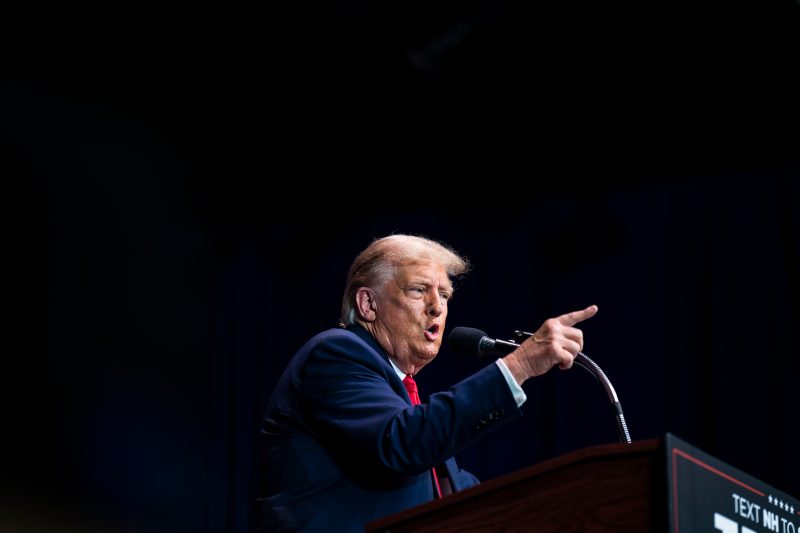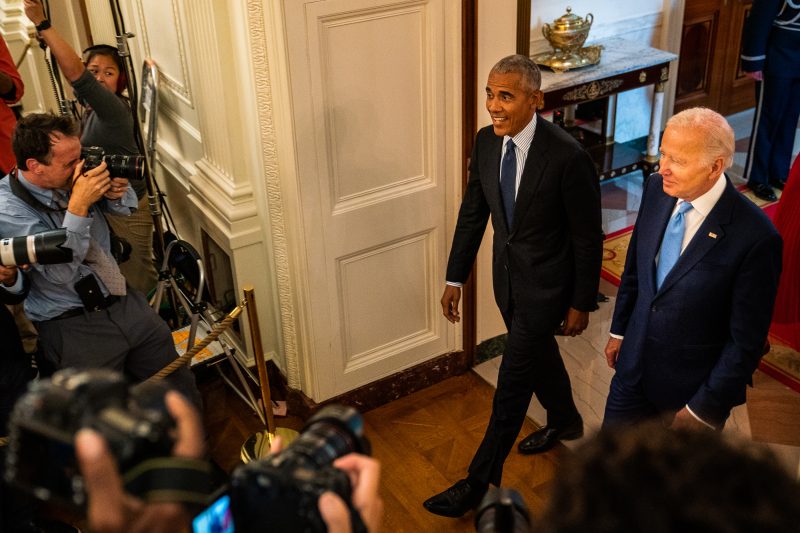Trump files new challenges to federal election obstruction case in D.C.

Former president Donald Trump launched a multipronged legal attack late Monday on his federal prosecution for allegedly subverting the results of the 2020 election, saying his actions were protected by the First Amendment as political speech and arguing that he cannot be tried in criminal court for trying to block Joe Biden’s victory after being impeached by the House but acquitted by the Senate.
In court filings that landed moments before a midnight deadline, lawyers for Trump claimed he was a victim of political persecution by the Biden administration. They called the charges against Trump legally defective and vague, and said the indictment should not link him to the violence of the Jan. 6, 2021, attack on the U.S. Capitol, because he is not charged with inciting that riot.
“Because the Government has not charged President Trump with responsibility for the actions at the Capitol on January 6, 2021, allegations related to these actions are not relevant and are prejudicial and inflammatory. Therefore, the Court should strike these allegations from the Indictment,” wrote defense attorneys Todd Blanche, John Lauro, Emil Bove and Gregory Singer.
“The indictment must be dismissed because it seeks to criminalize core political speech and advocacy that lies at the heart of the First Amendment,” they wrote.
While aspects of the former president’s case raise historic and unprecedented legal questions, the motions filed late Monday are fairly typical for criminal defendants trying to challenge the legal sufficiency of the charges against them.
Trump’s claims of selective and defective prosecution have been raised unsuccessfully over the past two-plus years by defendants charged in connection with the Capitol riot, in which angry Trump supporters — sent by Trump to the Capitol after a rally near the White House — injured scores of police officers, led to multiple deaths and forced the evacuation of Congress as it met to formally certify the 2020 election results.
Prosecutors led by special counsel Jack Smith will have the opportunity to respond to Trump’s motions in coming weeks, both in writing and in oral arguments.
Trump is scheduled to face trial in federal court in Washington in March after pleading not guilty to an Aug. 1 indictment accusing him of a criminal conspiracy to remain in power, obstruct Congress’s lawful certification of Biden’s victory and deprive Americans of their civil right to have their votes counted.
The case is one of four felony prosecutions of Trump charged this year, including a state trial in Georgia that involves similar allegations of trying to obstruct the state’s election results; a federal indictment in Florida over Trump’s alleged retention and mishandling of classified documents and obstruction after leaving the White House; and a New York state business fraud prosecution accusing Trump of covering up a hush money payment made during the 2016 election campaign.
In Monday night’s motions, Trump argued that Congress’s failed impeachment effort — in the final days of his presidency, after the Capitol riot — was the proper venue to decide Trump’s guilt or innocence regarding his election-related efforts. Trump’s legal team also maintained that Trump had acted within the bounds of the presidency when seeking to overturn the 2020 results.
The Constitution states that a president impeached and removed from office may be subsequently charged by “Indictment, Trial, Judgment and Punishment,” language that Trump’s attorneys argued “presupposes that a President who is not convicted may not be subject to criminal prosecution.”
They added, “The Constitution’s plain text, structural principles of separation of powers, our history and tradition, and principles of Double Jeopardy bar the Executive Branch from seeking to re-charge and re-try a President who has already been impeached and acquitted in a trial before the U.S. Senate.”
Prosecutors have previously said Trump argued the opposite during his impeachment trial, saying he could be prosecuted later if the Senate acquitted him, an interpretation that prosecutors have agreed with. Smith’s team has argued that the clause was meant to limit Congress’s power to removing and disqualifying presidents from office, not to preclude the prosecution of those who escaped removal.
In a separate filing late Monday, Trump’s legal team argued that — even if the allegations laid out in the indictment were true — the government did not sufficiently explain how the former president broke the laws he is accused of violating.
For example, the defense attorneys said that while prosecutors charged Trump with conspiracy to defraud the country, they did not show that his intent was deceitful — an intent that Trump’s lawyers said should be necessary to charge him with the crime.
Legal experts have said that intent, or proving that Trump knew his claims of widespread election fraud were lies, will be a crucial element of Smith’s case. But the Trump team argued Monday night that the president was not in the position to deceive anyone about whether the election was fraudulent. The lawyers said the case shouldn’t be allowed to go to trial and urged U.S. District Judge Tanya S. Chutkan to dismiss his indictment on statutory grounds.
“Virtually every American, including the cited public officials, had similar access to much of this same information, including a mountain of publicly reported facts and opinions, which were the subject of wall-to-wall media coverage throughout the post-election period and beyond,” the filing reads.
“To assert that President Trump, as one voice among countless millions, was somehow capable of unilaterally ‘tricking’ or ‘deceiving’ these individuals, who include some of the most informed politicians on the planet, simply by advocating his opinions on this contentious issue, is beyond absurd.”




